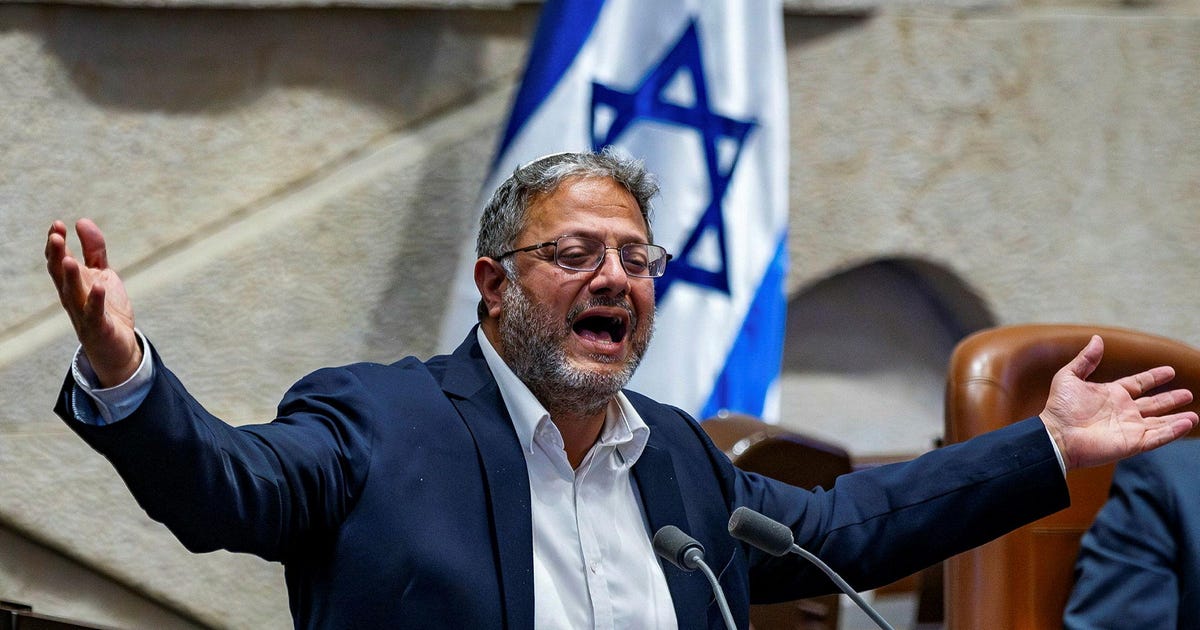The Israel Prison Service – heavily influenced by far-right Minister Itamar Ben-Gvir – uses an array of tactics to stop prisoners from talking to lawyers. Even when they accuse attorneys of terrorism, the media pounces blindly
Why it matters
- The Israeli Prison Service's tactics severely hinder the legal rights of Palestinian prisoners.
- Accusations against lawyers threaten the integrity of legal representation and due process.
- These actions reflect broader trends of repression against Palestinian rights in Israel.
In recent developments within Israel's prison system, the influence of far-right Minister Itamar Ben-Gvir has become increasingly evident. The Israel Prison Service has adopted a range of tactics aimed at obstructing communication between Palestinian prisoners and their legal representatives. These measures not only impede the prisoners' access to legal counsel but also create a climate of fear and intimidation.
Reports indicate that the prison authorities have gone so far as to label attorneys representing Palestinian prisoners as terrorists. This alarming trend serves to delegitimize the essential role that lawyers play in safeguarding the rights of their clients, while simultaneously providing the prison service with a pretext for restricting visits and communications. The ramifications of these actions are profound, affecting not only the individual prisoners but also the broader legal framework that governs their treatment.
The actions taken by the Israel Prison Service are not isolated incidents; they are part of a systematic effort to control and suppress dissent among Palestinian populations. By branding lawyers as threats, the authorities are effectively creating a chilling effect, making it increasingly difficult for prisoners to seek justice or challenge their detention. This tactic also acts as a deterrent for other potential legal representatives, who may fear repercussions for their involvement in defending these individuals.
Additionally, the media's response to these accusations has been troubling. Rather than critically examining the claims made by the prison authorities, many outlets have reported these allegations without scrutiny, often amplifying the narrative that paints legal advocates as dangerous figures. This uncritical acceptance of the prison service's statements reflects a concerning trend in the media landscape, where the rights and voices of marginalized communities are frequently overlooked or misrepresented.
Legal experts and human rights organizations have condemned these practices, emphasizing that they violate both domestic and international legal standards. The right to legal representation is a fundamental aspect of any justice system, and the systematic undermining of this right for Palestinian prisoners raises serious ethical and legal concerns.
Furthermore, these developments occur amid a backdrop of ongoing tensions and conflicts in the region. The treatment of Palestinian prisoners is emblematic of larger issues surrounding human rights and governance in Israel. As the Israeli government continues to embrace far-right policies, the potential for further erosion of civil liberties becomes increasingly likely.
Critics argue that the actions of the Israel Prison Service are indicative of a broader strategy to silence dissent and maintain control over occupied territories. By targeting lawyers and restricting legal access, the state is effectively curtailing the ability of prisoners to contest their detention or advocate for their rights.
The implications of this situation extend beyond the prison walls. The denial of legal rights for Palestinian prisoners can lead to wrongful convictions, prolonged detentions without trial, and a general sense of lawlessness within the system. Such conditions foster an environment where abuses can thrive unchecked, further exacerbating the cycle of violence and repression.
As advocacy groups rally to support the rights of Palestinian prisoners, it is crucial for the international community to pay attention to these developments. The erosion of legal rights in Israel is not just a local issue; it resonates globally as a matter of human rights. The call for accountability and the protection of legal representation must be amplified, ensuring that the voices of those affected are heard and respected.
In conclusion, the tactics employed by the Israel Prison Service under the influence of Minister Ben-Gvir represent a serious challenge to the rule of law and the protection of human rights. As these issues continue to unfold, the need for vigilance, advocacy, and international scrutiny will only grow more urgent.











